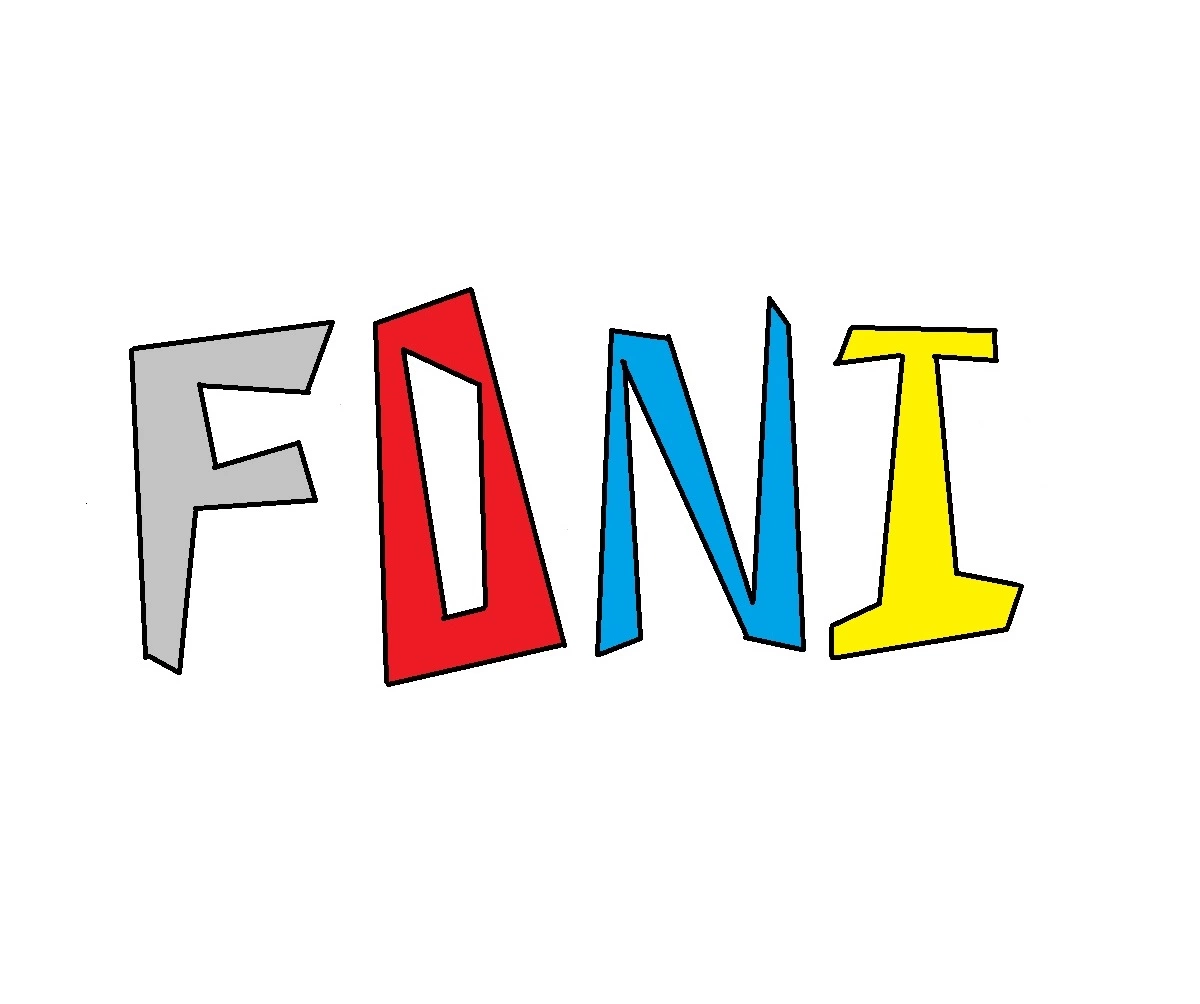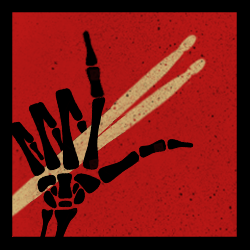One of the few things I remember from my French classes in high school was that the letter is called “double V” in that language. Why did English opt for the “U” instead?
You can hear the French pronunciation here if you’re unfamiliar with it:
https://www.frenchlearner.com/pronunciation/french-alphabet/
V and W are right next to each other in alphabetical order, which seems to lend further credence to the idea that it should be “Double V” and not “Double U”. In fact, the letter U immediately precedes V, so the difference is highlighted in real-time as you go through the alphabet:
- …
- U
- V
- W
- X
- Y
- Z
It’s obviously not at all important in the grand scheme of things, but I’m just curious why we went the way we did!
Cheers!
well, okay, so:
U, V, and W are all descended from the same letter in Latin. V and W are the consonate versions of that ur-letter and U is the vowel version.
But W is much closer to the remaining vowel sound: We could spell “whiskey” as “uiskey” without really changing the pronuncuation, for example.
So despite the glyph, it’s much closer to a U than a V; it’s the U that saw glyphic differentiation even though it’s V that saw phonic differentiation.
So to put it in plain words:
The English are an illiterate bunch of alcoholics who base their entire language on the way it’s pronounced when you’re in the pub.
While the French are a stuck up bunch of pretend aristocrats who based their entire language on the scripts of the court.
Thank you. That was helpful
Wow, not really off the mark.
Upper class English spoke French in Shakespeare’s time, seeing the English language as the tongue of the commoners, lower class folk.
Part of what made Shakespeare’s plays different - he brought comedy similar to Moliere’s into English.
How would you explain the Japanese? I’m only curious because something that draws me to the language is its “common sense” approach to pronunciation.
Super basic example: か ka が ga
When they import words from other languages the phonetic interpretation makes so much more sense to me. This actually drives me away from learning a lot of European languages.
I’m only curious because something that draws me to the language is its “common sense” approach to pronunciation.
Ever looked at Finnish? I know a lot of people say of a lot of their own languages that “we say things like they’re written”, but we really do. There’s like one phone (linguistics term, not telephone) in the language. It’s the velar nasal that is in the word “language”, ironically. Other than that, purely phonetic. You can put any word in front of me and I’ll pronounce it the same way any other Finn would, where as in English, asking “how do you pronounce that” is common as hell.
Anyway, look at some of these examples:
A horse = hevonen [ˈheʋonen]
Peasoup = hernekeitto [ˈherneˌkːei̯tːo]
Come = tule! [ˈtuˌle]
Cool! Are there different Finnish accents? Geographic, socioeconomic, or otherwise?
Accents are really to do with pronunciation more than the words. Like a person speaking the King’s English with a heavy Russian accent is still using the same grammar and words.
Finnish has dialects.
Same thing with Nordics in general, even though Scandinavian languages aren’t related to us in the slightest. (They’re more like cousins of English.) The reason I mention it is that all Nordics pretty much use a concept called “book-languages”. It’s the standardised spelling and grammar. Dialects can vary quite a bit, to the extent that I might have more trouble understanding someone slightly drunk with a heavy dialect from the other side of Finland than I would understanding a light Scottish accent.
There’s also Finnic languages in general. Karelian is one. It’s to Finnish what the Scots language is to English.
But everyone understands the “book language”, although no-one really speaks it. Newsanchors, politicians, etc, arguably, but even they use a bit of informal expression from dialects sometimes.
But you don’t see news readers with heavy accents, unless it’s for comedy. My city used to have a news cast with a reader who had the strongest Turku dialect.
The differences are mostly tribal (Finland had “tribes” before the national movement), if you look back far enough. But yeah, geographic, really.
Ah, I get it. Really interesting, thanks!
Japanese does have plenty of exceptions regarding kana -> pronounciation, though it’s better than English. Tons of readings for kanji is also a thing (particularly with proper nouns being crazy).
For just kana orthography vs pronounciation example, n before certain things gets pronounced like an m (see 新聞 しんぶん shinbun -> shimbun).
‘i’ and ‘u’ frequently get devoiced (classic example is です desu sounding like dess). 靴下 くつした kutsushita is a fun one. Even my wife didn’t realize the devoicing as a native speaker.
There are more than I’m forgetting at the moment, but those are the common ones.
For kanji you have 百 hyaku (hundred) 二百 ni-hyaku (two hundred), so three hundred 三百 should be san-hyaku, right? Nope! San-byaku (with that n -> m transition here, too). There are tons of these.
I wasn’t trying to suggest the entire language has no irregularities. Only that in my mind if you take English “story” → “sutori” things like the “su” make sense because if you listen to yourself say it, you are making a “su” sound rather than just “s.”
Even the “shinbun” → “shimbun” part makes sense to me because it’s rather difficult to pronounce the former properly.
Though it has irregularities it seems much, much more logical than English or Spanish. Also, I just don’t like conjugating everything all the time (that’s more of an argument toward learning Mandarin but Japanese is still way simpler than conjugating in Spanish in my opinion).
Gotchya. I thought others might be interested in some quirks of japanese as well which is why i wanted to share
Also the hiragana は(ha) を(wo). If they are a suffix particle they are pronounced wa and o respectively
Particles aren’t really suffixes, but yes:
は ha -> wa を wo -> o へ he -> e
There are some other oddities, especially if you get into dialects (even in Edo/Tokyo dialect, ga can become more like na (with the n being a nasal kinda like ‘ng’ in ‘thingy’).
The modern orthography is so much nicer, though; trying to read old texts is interesting with no small kana at all and some things that were just terrible for writing v pronounciation.
Nah man, that’s just English.
Other European languages are mostly completely phonetic with exceptions. English is a mess.
You would just have to learn the clusters. Like in French “eaux” makes an /o/ sound, but it’s always that same sound, wherever you encounter it.
Polish looks like letter salad for the uninitiated, but is also consistent in its own rules. Cz = tsh, sz = sh and so on. Once you’ve cracked the code, it’s not difficult to pronounce polish words.
“uiskey”
That is actually very close to the original Irish words: uisce beatha (ish-kuh ba-ha), meaning “water of life”.
Notably ‘uisce’ is just the word for ‘water’, which tracks.
The Water of Life features in lots of fairy tales. Is that what is being referred to? Is Water of Death another name for an alcohol?
The Water of Life features in lots of fairy tales. Is that what is being referred to?
Likely. Alcohol, in many cultures had a spiritual/religious characterization. We literally have an ancient Egyptian beer recipe because it was written into a hymn praising Ninkasi, a Sumerian goddess of beer.
Is Water of Death another name for an alcohol?
That’s a good question. It’s Fernet (/s).
I do not actually know that. I would suspect that it would be another substance. Maybe an acid or toxin.
You know how the Romans wrote U? V.
Like J is a variant of I, U is a variant of V. Julius Caesar would have written his name IVLIVS
In some languages, especially English, the shapes were used interchangeably until well after the invention of the printing press. There are old, modern English dictionaries in existence where you’ll find words with “i” and “j” sorted in the “wrong” order or intermixed, and likewise for “u” and “v” for precisely this reason.
The letter w was born during that mixed up time, and so it got the double-u name, despite the fact that the shape doesn’t seem to match any more.
(For more fun, look up the letter wynn, “Ƿ” which if it had survived into Middle English, might be what we’d be using instead.)
An example of the u|v mixup people can look at the Slovenian language.
They have the v where other languages have a u, but they say it like a u.
example: automobile vs avtomobil
The 2nd Slovenian in this thread, stuff is getting interesting.
When I was first teaching my son the alphabet, we got to “W” and, before I could say it, he called it “two vees!” It was so cute.
I write my "w"s like “uu”. With curves.
Must make it challenging to express “uwu.”
UuuU
Oh you’re gonna love learning how to write Russian cursive.
I’m going to?
It’s not impossible, but I don’t really plan to have to.
C’mon comrade, be a good sport. It’s a long train journey to gulag.
𝓊𝓌𝓊 :3
That’s how you write it in cursive. You know for us that are old enough to remember what cursive was.
“uu” ends on a down stroke. W ends on an upstroke, just like the difference between u and v.
Not just cursive; lower case “W” is often written uu. It just depends on the style of the writer.
Whats the keyboard shortcut for that?
https://en.wikipedia.org/wiki/W
The Germanic /w/ phoneme was, therefore, written as ⟨VV⟩ or ⟨uu⟩ (⟨u⟩ and ⟨v⟩ becoming distinct only by the Early Modern period) by the earliest writers of Old English and Old High German, in the 7th or 8th centuries.[8] Gothic (not Latin-based), by contrast, had simply used a letter based on the Greek Υ for the same sound in the 4th century. The digraph ⟨VV⟩/⟨uu⟩ was also used in Medieval Latin to represent Germanic names, including Gothic ones like Wamba.
It is from this ⟨uu⟩ digraph that the modern name “double U” derives. The digraph was commonly used in the spelling of Old High German but only in the earliest texts in Old English, where the /w/ sound soon came to be represented by borrowing the rune ⟨ᚹ⟩, adapted as the Latin letter wynn: ⟨ƿ⟩. In early Middle English, following the 11th-century Norman Conquest, ⟨uu⟩ regained popularity; by 1300, it had taken wynn’s place in common use.
deleted by creator
Fun fact, in Italian “w” is sometimes referred to as “doppia v” which is “double v”.
Same in Swedish! “dubbel v”
The same in Spanish
German as well
What? In German ‘w’ is
[]and ‘v’ is[].Never heard it.
French, too
Slovene as well.
Finnish as well (kaksois-v)
And norwegian (“dobbel V”)
You beat me to it. Also, we meet again!
Someone changed the font.
This is nvts. N. V. T. S.
Hahaha, history of the world!
just after 1600 the letters u an v switched. So if you read something written in 1590 it would use words like ‘haue’ (have) and heauie (heavy). This was two different unrelated switches somewhat seperated in time not an actual trade.
I am not 100% sure of the answer (I am sure there are websites where this is explained), but I am reasonably sure it has to do with the fact that V and U used to not be distinct letters, but variations of the same letter.
I find both of those names silly, I like the fact that my first language (German) doesn’t call any letter “double” anything.
But we have Eszett
(s + z = ß)
which I usually call scharfes S
A lower case w in handwriting is more uu shaped, at least.
uwu
OwO
With less cursive being taught and used, this association will eventually disappear. But yes, despite it not being where the letter name came from, growing up I always thought of the appears of w in cursive writing as evidence it is connected more with u than v.
Not even talking about cursive. Regular handwritten lowercase w’s are just two u’s connected together.
Not where I’m from. Looks like a shorter version of the capital letter.
Here’s a worksheet that shows how I learned to hand write w without cursive.
It actually kinda makes sense. Two sounds that a U commonly makes are “OO” like in “yule” and “UH” like in “just”. If you say “OO-UH” close enough together it makes the sound of a W.
deleted by creator
I may be wrong about the actual reason for this - as ‘double V’ is also quite common - and it may just end up being some kind of ‘well when the printing press came to England’ thing, but:
In the classical Latin alphabet, the letter ‘V’ was not actually representative of what we today recognise as the /u/ sound (or its variants). It was in fact the written form of the /u/ sound (and related variants). So when the W was introduced to the English alphabet, I guess it was indeed a ‘double /u/‘.
FWIW Spanish has both, depending on the dialect. I grew up saying doble-u, but I know other countries say doble-ve














